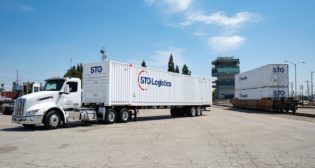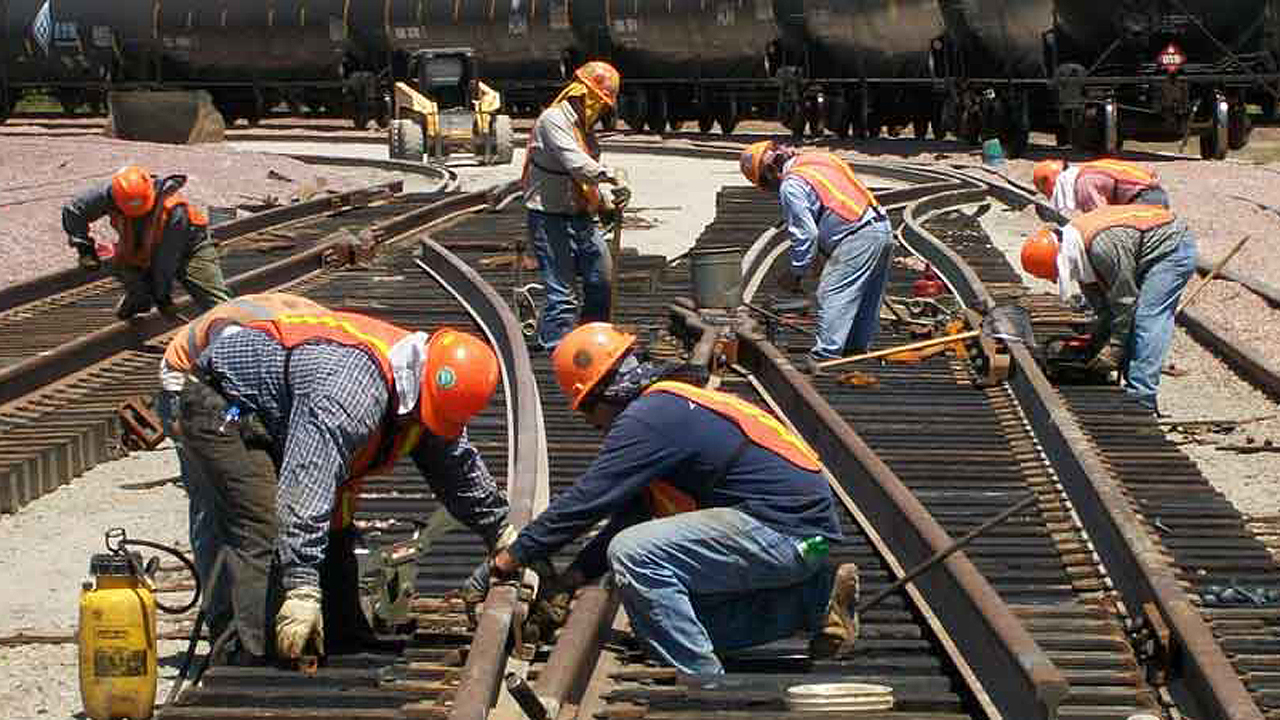
Court orders BMWED remain in national handling
Written by Frank N. Wilner, Capitol Hill Contributing Editor
The Brotherhood of Maintenance of Way Employes Division of the Teamsters Rail Conference (BMWED) was rebuffed by a federal district court March 30 in an attempt to sever itself from multi-employer contract negotiations (national handling) in this current round of wage, benefits and work rules negotiations.
Federal Judge Thomas F. Hogan ruled BMWED could not break decades of precedent—during which it negotiated with a coalition of railroads represented by the National Carriers Conference Committee (NCCC)—and suddenly separate out four railroads for individual bargaining while remaining in national handling with other railroads.
The Railway Labor Act (RLA) and previous federal court rulings, ruled Hogan, require BMWED to bargain on a national basis with the carrier coalition represented by the NCCC. Negotiations toward amending national agreements began in January 2020 following a November 2019 exchange of desired contract amendments.
Under the RLA, contracts never expire, but are periodically amended through labor-management negotiations. There is no time limit on the length of negotiations, with national bargaining now in its third year.
Railroads are unique in bargaining with 12 separate labor organizations representing specialized crafts. By contrast, unionized autoworkers are represented by a single labor union, the United Auto Workers.
In fact, the RLA’s command to “exert every reasonable effort to make and maintain agreements” could be thwarted were carriers required to engage in separate negotiations with 12 craft unions. The National Mediation Board (NMB) said in its 1938 annual report that were labor-management disputes handled carrier-by-carrier, the process would be “interminable.” A federal court in 1960 spoke of the “practical appropriateness of mass bargaining.”
Even before railroads created the NCCC in 1963 as its umbrella bargaining representative in national handling, carriers engaged in regional (as opposed to national) handling with their unions. Judge Hogan observed that BMWED has traditionally bargained with multi-employers, including over the past four rounds of national handling dating to 1999.
In exchanging desired contract amendments in November 2019, the NCCC said it intended to bargain with BMWED on a national basis. BMWED said at the time it intended to bargain nationally except with Conrail Shared Assets, CN U.S. subsidiaries, Norfolk Southern (NS), and Union Pacific (UP), with which it sought to bargain individually.
Anticipating those individual railroads’ refusal to do so, BMWED preemptively filed lawsuits in separate district courts seeking to force those railroads to bargain outside of national handling. BMWED cited favorable legal precedent in the federal judicial circuits in which those district courts operated.
To BMWED’s dismay, and following a railroad responsive filing, the cases were consolidated and reassigned to the federal district court in the District of Columbia Circuit where there is precedent for remaining in national handling. The courts where BMWED expected a favorable ruling agreed that “judicial economy weighed in favor” of transferring the cases to the D.C. federal district court “to allow the identical cases to be decided in a single action.”
The test used by Judge Hogan—under the District of Columbia Circuit precedent—in deciding against BMWED was whether the parties had a long history of negotiating in a particular way, and whether it was still appropriate to require the parties to continue to negotiate in that way.
“The carriers and the BMWED have generally participated in national handling,” ruled Judge Hogan. “In fact, it appears that the BMWED and other unions have frequently requested national handling of these issues in the past.”
Then speaking to carrier concerns that BMWED was seeking to separate some carriers from national handling to gain negotiating leverage, known as whipsawing, Judge Hogan said, “Obviously, if wage adjustments were to be handled on an individual carrier basis, each carrier would be deterred from settling because of the possibility that a competing carrier might obtain better terms. The historical practice of the parties continues to support” national handling.
BMWED also sought a ruling—which some consider a spiteful move—that certain smaller (non-Class I railroads) that had opted out of national handling on wage and work rules amendments, but not health-care plan amendments, be required to participate fully in national handling as the NCCC sought of BMWED.
BMWED argued that if it “can be compelled to participate in national handling [those smaller railroads] cannot refuse to participate on national handling with respect to wages and work rules.”
In rejecting BMWED’s argument, Judge Hogan ruled, “there is a long history of certain small railroads” participating in national handling only for health-care amendments as structural changes in the plan benefits can be implemented only by the national policyholders. It is “a practice to which BMWED has never objected” and is “practically appropriate,” he ruled.
In national handling, BMWED is part of a two-union coalition with the Mechanical Division of the International Association of Sheet Metal, Air, Rail and Transportation Workers (SMART-MD). During the pendency of the BMWED court action, the BMWED/SMART-MD coalition last June entered into mediation guided by the federal NMB. Although in March the two unions asked the for a release from mediation, which could lead to a 90-day countdown toward a national work stoppage, the NMB is not expected to grant the request.

Ten other unions, in a second coalition, also are in national handling. They entered into NMB guided mediation with the carriers in January.
Railway Age Capitol Hill Contributing Editor Frank N. Wilner is author of “Understanding the Railway Labor Act,” published by Simmons-Boardman Books.



